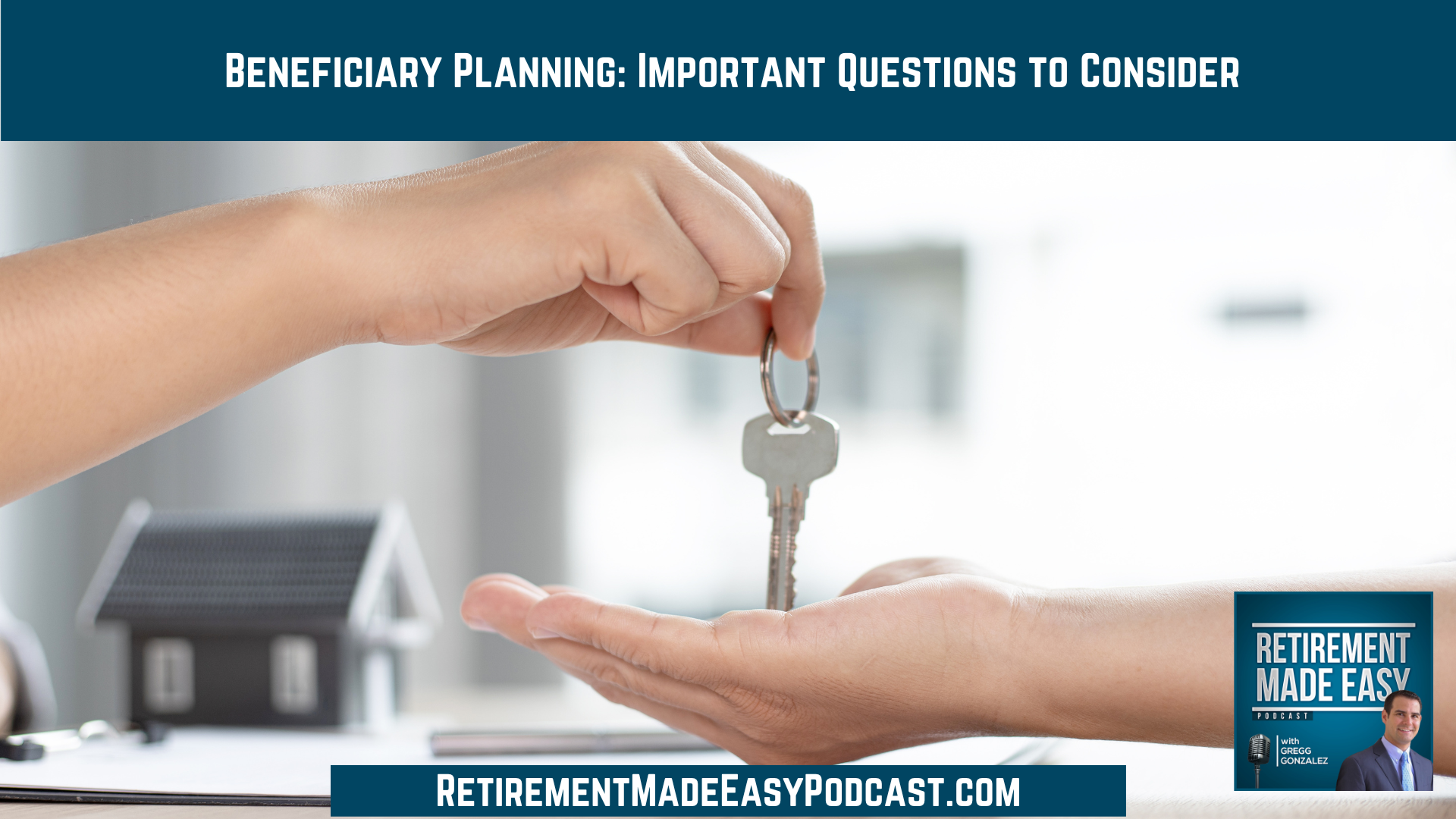
Where do you want your assets to go when you’re no longer here? I know it may seem morbid, but this is an important part of retirement planning that most people neglect. But the heart of the matter is your family. What do you want to leave behind? Or do you want to leave money to your favorite charities?
Doing what I do for a living, I have these tough conversations every day. It’s my job to make recommendations to make sure your wishes are carried out seamlessly and tax-efficiently. In this episode of the Retirement Made Easy podcast, I share the story of a couple who thought they had a great plan—until I started asking questions.
You will want to hear this episode if you are interested in…
- [3:07] Check out RetirementMadeEasyPodcast.com!
- [3:51] Setting the stage: An 18-year-old plan
- [8:43] Splitting the retirement accounts
- [12:10] Splitting a home equally
- [14:44] Beneficiary planning for four children
Setting the stage: An 18-year-old plan
I met with a 60-year-old couple—who listen to this podcast—and are potential clients. This nice couple are both in their second marriages. The wife has two daughters and the husband has two sons. All four children are adults and financially independent.
They’d done some beneficiary planning with an attorney when they first got married and hadn’t touched it much since. The estate plan that he developed was hard to follow—and it wasn’t forward-looking. It might have been a decent plan 18 years ago but it isn’t now. You have to update your plan as your lives and needs evolve, as well as those of family members.
The attorney had recommended that the IRA money would go to her daughters because their families were lower-income and they’d have to pay less taxes. The Roth IRAs would go to his sons. The house would be split four ways.
Lastly, one of the daughters was listed as the owner of all of their bank accounts. She was supposed to split the accounts equally among the four kids.
Allocating the retirement accounts
The different account values weren’t remotely close to being the same. There was far less money in the Roth IRAs than the IRAs. And what are the values going to be in 32 years? What will the values be when they’re taking withdrawals throughout retirement? We don’t know what taxes will be like in 32 years. Was it going to be fair at all? Based on my estimations, not remotely.
At the time they set up their plan, they thought the values were closer. But they want everything to be fair and split evenly. In my opinion, the only way to do that is to make sure each adult child gets 25%. We can’t base this on the tax environment that each adult child might be in in 32 years because everything can change.
Considering the bank accounts and home
Their current plan is to split the house equally among the four children. But the adult children didn’t all get along and weren’t necessarily on good terms.
Secondly, what if one of them got into a car accident, hit and killed someone, and was sued— what would happen to that home? What if it was the daughter whose name was on the bank accounts? There’s a lot of liability and risk that were gaps in their plan. We have to prepare and protect ourselves from the “what-ifs” in life.
Beneficiary planning for four children
Let’s assume you as the listener have children. Do you want your money to be left equally among your children? Are you going to leave the assets to your children in a lump sum or in a graduated distribution? Are their creditors that might come after a son or daughter if they inherit money?
By having these conversations and getting on the same page about intentions, we can come up with a pretty good game plan. At the end of the day, a lot goes into beneficiary planning, and I want to make sure that we have the best plan in place for you and your family.
Resources & People Mentioned
Connect With Gregg Gonzalez
- Email at: Gregg@RetireSTL.com
- Podcast: https://RetirementMadeEasyPodcast.com
- Website: https://StLouisFinancialAdvisor.com
- Follow Gregg on LinkedIn
- Follow Gregg on Facebook
- Follow Gregg on YouTube



